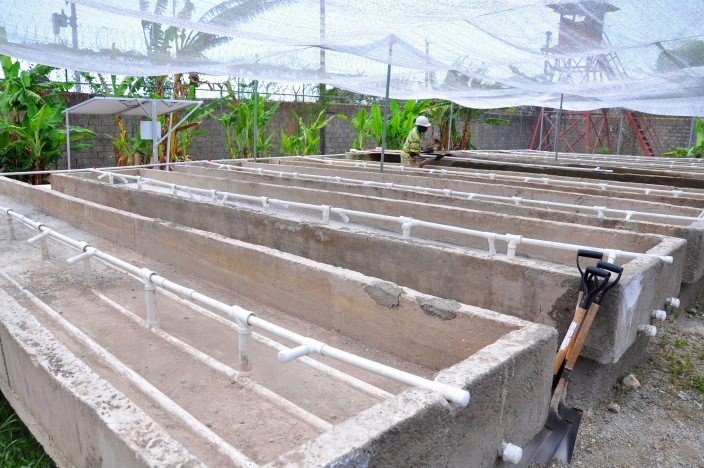
Dec. 2014—The first view of the Metcalfe Juvenile Remand Center, a “holding facility” for young male offenders who will be brought before the courts for criminal offenses, is not encouraging. Located in the heart of Kingston, Jamaica’s capital city, it is secured by a 50-foot-tall gate with metal facing, topped with rolled barbed wire, and at least five armed security guards circle the entrance. Inside, young boys between the ages of 12 and 17 attend to various duties.
A partnership between USAID, the Government of Jamaica, and the United Nations Development Program (UNDP) is making the Center an alternative to the traditional adult incarceration center by providing youth with the possibility of a positive future. Established in 2011, the partnership aims to pursue youth-friendly approaches that help these young men to become useful citizens through a range of social, educational, behavioral and recreational activities. The approach emphasizes three main areas: prevention, intervention and rehabilitation.
The Center is the only one of its kind in Jamaica. It can accommodate up to 200 wards, although numbers vary from week to week. Despite the circumstances that brought the juveniles to the Center, careful attention is paid to ensuring that their needs are met in a holistic manner. According to Superintendent Karen Elliott, the officer in charge of the Center, remandees are provided with three daily meals, an academic and recreational curriculum, and health care services. These provisions are significantly greater than what a child might receive in a traditional Jamaican penitentiary.
"We try, as best as possible, to create a healthy and stable environment for the young wards, despite their circumstances,” says Elliottt. “For most of our young men, the period of remand depends on the severity of offenses, from petty larceny to murder or possession of guns. The average stay ranges from three to six months.”
During their stay, each ward is encouraged to participate in a number of workforce development and skills training activities to prepare them for productive reintegration into their communities. Specific activities include classes on building self-esteem and confidence, decision making, conflict resolution, personal development and interpersonal relationships, and communication skills. Training is also provided on farming and sports as well as information on medical screenings and treatments, adolescent reproductive health, and human and child rights. In support of these activities, USAID provided the Center with a computer lab, chickens and a layered chicken coop for egg production, an irrigation system to improve banana and vegetable yields, and even a dental chair to provide dental services to the remandees. The new computer lab supports education in literacy, numeracy and computer technology in addition to regular curricula on integrated studies, agriculture, music and physical education.
In 2014, USAID collaborated with the INMED Partnership for Children to construct an on-site aquaponics unit to raise fish and lettuce for consumption at the Center as well as for sale. With the cost of food and support to remandees continuing to rise, these activities provide both technology training on the aquaponics unit as well as much needed nutritious food.
The Center has made significant progress since it opened in April 2011, particularly in farming, despite the limited space. The cultivation of vegetables and bananas has helped the wards by supplementing their dietary needs and empowering them with tanglible skills and new attitudes as they reintegrate into society. Also, the chicken coop now has 115 birds that produce on average 100 eggs daily that are used to supplement meals, with surplus eggs sold for profit. In 2013, egg sales had yielded more than $286,000 since the start of the egg program.
USAID continues to collaborate with the police, correctional services and civil society to develop policies and practices to channel juvenile offenders to rehabilitation programs. Building upon the success of this partnership, USAID recently teamed up with the Organization of American States to continue supporting young men at the Center through six to 12 months of case management and reintegration after they leave the facility. The partnership looks to reproduce this activity for female juvenile remandees in a similar facility in Jamaica.
LINKS
Follow @USEmbassyJA, on Facebook







Comment
Make a general inquiry or suggest an improvement.